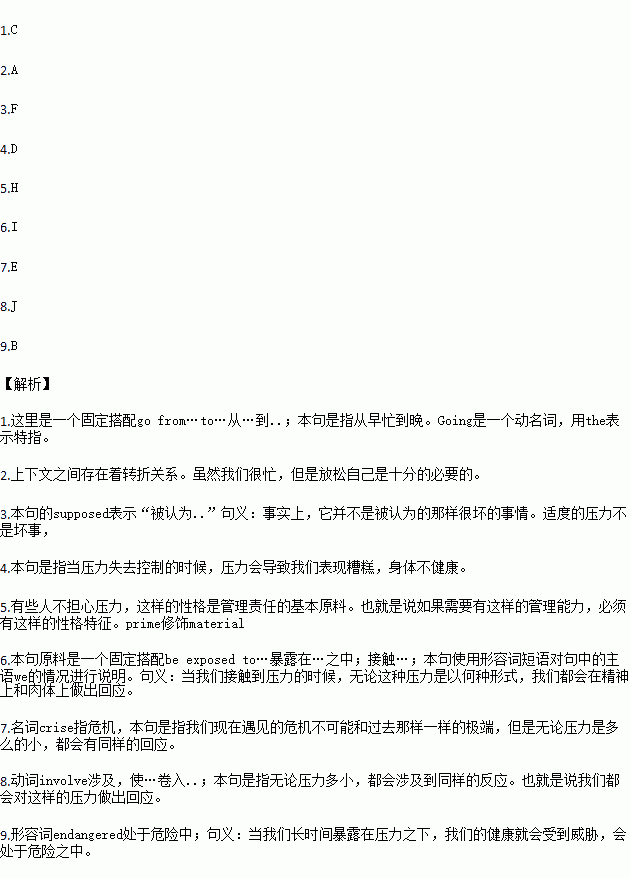题目内容
Directions: Complete the following passage by using the words in the box. Each word can only be used once. Note that there is one word more than you need.
A. essentialB. endangeredC. goingD. performanceE. crises
F. supposedG. consequenceH. materialI. exposedJ. involves
As the pace of life continues to increase, we are fast losing the art of relaxation. Once you are in the habit of rushing through life, being on the 1.from morning till night, it is hard to slow down. But relaxation is 2.for a healthy mind and body.
Stress is a natural part of everyday life and there is no way to avoid it. In fact, it is not the bad thing as is often 3. to be. A certain amount of stress is vital to provide motivation and give purpose to life. It is only when the stress gets out of control that it can lead to poor 4.and ill health.
The amount of stress a person can stand depends very much on the individual. Some people are not afraid of stress, and such characters are obviously prime5. for managerial responsibilities; others lose heart at the first sign of unusual difficulties. When6.to stress, in whatever form, we react both chemically and physically. In fact we make choice between “flight or fight” and in more primitive (远古的) days the choices made the difference between life or death. The 7. we meet today are unlikely to be so extreme, but however little the stress, it 8.the same response. It is when such a reaction lasts long, through continued exposure to stress, that health becomes 9. Since we can’t remove stress from our lives (it would be unwise to do so even if we could), we need to find ways to deal with it.

